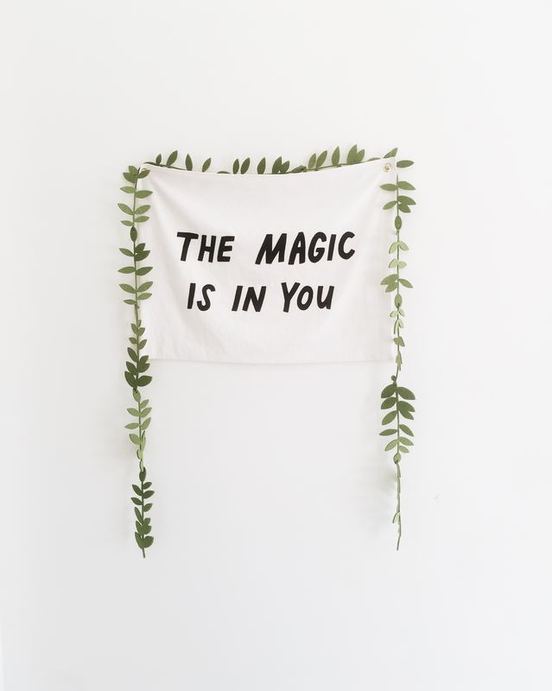|
What exactly is coaching? Sometimes people imagine that someone else can wave a magic wand and change their lives for them. If only! Coaching can be hard work. But I do have a wand that I can wave to help bring out your magic. It's a professional partnership where we work together. Have you ever wondered what a coach does? If you have, you're not alone. A lot of people still aren't sure what coaching is, whether it works, how it's different to counselling. There is- being honest- some scepticism about it. I want to try to clarify what coaches do. I love this image: the magic is in you. That's my role: to help bring it out. Whatever 'it' is. It's different for everyone I coach. So what is a coach? Sports coaches- you know, the headlines 'Andy Murray has a new coach.' Coaches work not only on physical performance but on the the mindset and the psychology behind winning. Executive coaches- in organisations helping senior managers, CEOS, MDs, with their performance, stress, work-life balance, visions for their organisation. Life, Career or Personal Development coaches- Yes, that's me. So what do I do? I'm here to help you make changes to every part, or one part, of your life. You may feel completely stuck (with a decision or how your life is now.) You may want some help structuring changes and need someone to help motivate you. Like many of my clients you may already have confided in friends, for weeks, months or years. Is a friend as good as coach? Friends are good. Friends can be all you need. But sometimes friends hold back from saying what they want to. Why? It's obvious; they don't want to offend you or fall out with you. I am like a good friend in some ways; I want the best for you and will do all I can to help you. But there the similarity stops. You are- being blunt- paying me. I'm here to do a job and do it well. I want to get you from A to B so you move forward. Is it like counselling? It IS a bit like counselling. We either sit in a comfy room ( or talk by phone) with you talking and me listening and asking lots of questions, but there are important differences. Do I tell you what to do? Nope. That's the first thing I learned when training. It's not my role to make choices for you. I will though point out some options - playing Devil's advocate at times. I'll also hold you accountable. So if you say you desperately want X, a month goes by, and you have done nothing towards your X, I'll be asking questions. It's about your goals You'll set goals. So at the end of each session you will have come up with something that you are happy to work on. It might be something small- like giving up wine on weekdays (and for some clients that's not such a small change; it's very hard work.) It could be a major behavioural change like learning how to be assertive and stand up to bullying at work or in your relationship. It could be analysing your own behaviour - which may go back to your childhood and parenting - but , unlike counselling, coaching is about change. You will discover why you behave as you are, but then we work on how to change that. I have coached numerous clients who have already had counselling, often for years. It helped but they were still stuck with the same relationship, the same job, the same lifestyle. They came to me for a kick up the pants. Someone to help them actually change their lives. Who comes to me? My clients are so varied: there have been CEOs who were thinking of giving it all up and going to open a vineyard in France, high flyers made redundant who wanted to look at other options for work, mums going back to work, women stuck in abusive marriages who needed support so they could leave. There have been writers- I'm adding to my list of authors I've mentored - and artists. Small business owners who I've worked with for several years seeing them take their businesses out of the spare bedroom and into an office with staff. And lots and lots of clients who had got to forty or fifty and decided the career they chose at eighteen wasn't working for them any more. I've not even mentioned all the women who need support during the menopause, or to reduce stress as they are torn between their own work, elderly parents and teenagers living at home. Coaching has a timescale. 'When do you want to achieve this?' You'll find that working with a coach for 6 months, maybe a bit longer, is usually all you need. When are you going to work magic on your life? www.glyniskozmacoaching.com
0 Comments
Okay. It's confession time. As a coach I'm supposed to be super-positive and upbeat. Well, I'm also human. This week hasn't been great; a lingering virus knocked me back with my own fitness goals. You may know that I'm doing the 1000 Mile Challenge. That's a thousand miles before 31 December. It's around three miles a day. Not much, you think. Well, it's not until you miss a few days for whatever reason. I knew I was in trouble when daytime TV, cake and hot drinks were so appealing. So now I've got this pretty big deficit after not walking for five days. I was feeling quite down about it. I'd been out walking in rain, sleet, wind, to get those miles in throughout January and February. But yesterday, I thought what can I do? I wasn't up to walking, but I could manage some exercise indoors. So, I got out my free weights and did a few reps for legs, bum and tum. I told myself that I could do just one set if I felt like it. But I did three. It wasn't earth-shattering but it was something. Today I managed a short walk and, while I was taking part in a coach training webinar, I did some free weights for my arms. I hate doing weights for my arms because it hurts. But I did them and it wasn't too bad as I was focused on the speaker. I kept thinking how easy it would be to let the 1000 Mile Challenge go. Why bother? But the fact is I'm probably not that short of my target and come the better weather and longer days I'll catch up (I hope.) Why am I telling you this? Because I hope it will spur you on to do something towards your own goals however small that step may be. You may feel you can't be bothered but at the back of your mind that little voice is nagging you to Just Do It. I feel better. I feel better for having taken control and stopped feeling sorry for myself. What's on your to-do list? Maybe it's a healthier diet, less booze, less sugar, or maybe it's keeping positive when you're having a rubbish day that's not your fault. Whatever it is...just do it. Give yourself a tiny goal and the odds are you will surpass it. How many barriers are there (really)?
Let's look at Tanya. (She's not a real client but this scenario is typical of many women I coach.) Tanya wanted to make a significant career change. She didn't want the long commute any more. She also wanted a higher salary. We discussed where and how she could find that job. Obviously, working more locally was going to mean she'd need to approach local companies. I asked her how she could do this. 'I don't think there are any.' How did she know that? She replied that when she'd looked around a year ago, she'd drawn a blank. But that was a year ago, I offered. Maybe things would be different now? She looked unconvinced. How could you find out, I asked her. 'Well, I could look, ' she said. But she then countered that with 'I don't think they would pay what I want.' How did she know that? She explained that a local company would not pay the same as a company in a large city. Yes, but how did she know that for certain? She didn't. How would she know? Only by applying for a job and being offered it. Tanya then admitted she was worried about her age. 'I'm too old for lots of these companies now; they all want people in their 20s, not someone like me of 45.' How did she know? Where was the evidence? There wasn't any; it was supposition. In the space of our session, Tanya had constructed three barriers: 1 There weren't any companies in the area that were suitable. 2 The salaries they paid would not be high enough. 3 They wouldn't employ someone her age. Remember there was no evidence of any of these; only in Tanya's imagination. In reality, there were some companies she could approach. There was flexibility on salary. Her age was seen as an asset because it showed she had experience. How are you closing doors? How many doors are you closing before you have tried? What are you doing or not doing because you feel it's a waste of time? How many preconceptions do you have about something for which there is no proof? Write down what is stopping you moving forward. Then be honest about how much of that is negative thinking, and how much is irrefutable fact. See the difference? How you can become a published author
You may know I'm an author of two self-help books. It was always a bit of a dream to write and when it almost fell into my lap I was amazed. I'd like to share how you can realise your own dream of writing by sharing some tips. I was asked to write my books because they fitted with my experience (many years in education before becoming a coach.) My role My role as a writing coach or mentor is to:
Tap into your own experience You will have something that you are an expert on, or can become an expert on, for your book. It could be your hobby, your professional work, travel, health, family history, biographies, professional 'how to' guides - there are so many options. If you are not quite an expert yet, you can become one if you have the enthusiasm. My role as a writing mentor is to give some guidance on what may appeal to publishers. My clients, whose books have been published, all started off with a few ideas. Natalie has become an international expert on the health condition her book covers. She wanted to write something very different when she came to me. I gently dissuaded her as I thought her idea wasn't unique enough. She was initially disappointed, but when we talked about what she had some knowledge on, it became obvious that she was an expert. She could help other parents going through the same situation. The book she wrote is now sold internationally and recommended by health professionals. Another client Harri used her business which she'd run for around thirty years as the springboard for her books. Very quickly she was asked to write a second book as a sequel. What can you write about? As a starter, how about jotting down at least three ideas for a non-fiction book? Think about your own expertise, places you've visited, people you admire, business or professional experience you could share as training, family history, food, self-help. There will be something. Do some research When you've got your ideas, do some research. Spend some time on Amazon to see if any similar books exist. Yes? But when were they written? Maybe they are out of date or out of print. Can your book have a different angle? If these tips have got you started, why not get in touch for a free discussion about whether we can work together on your writing? |
AuthorI'm Glynis, a career, relationship and wellbeing coach. These are my tips on what life throws at people like us and how coaching can help. You can read more about me here. Do get in touch if I can help you. Archives
March 2024
Categories |




 RSS Feed
RSS Feed